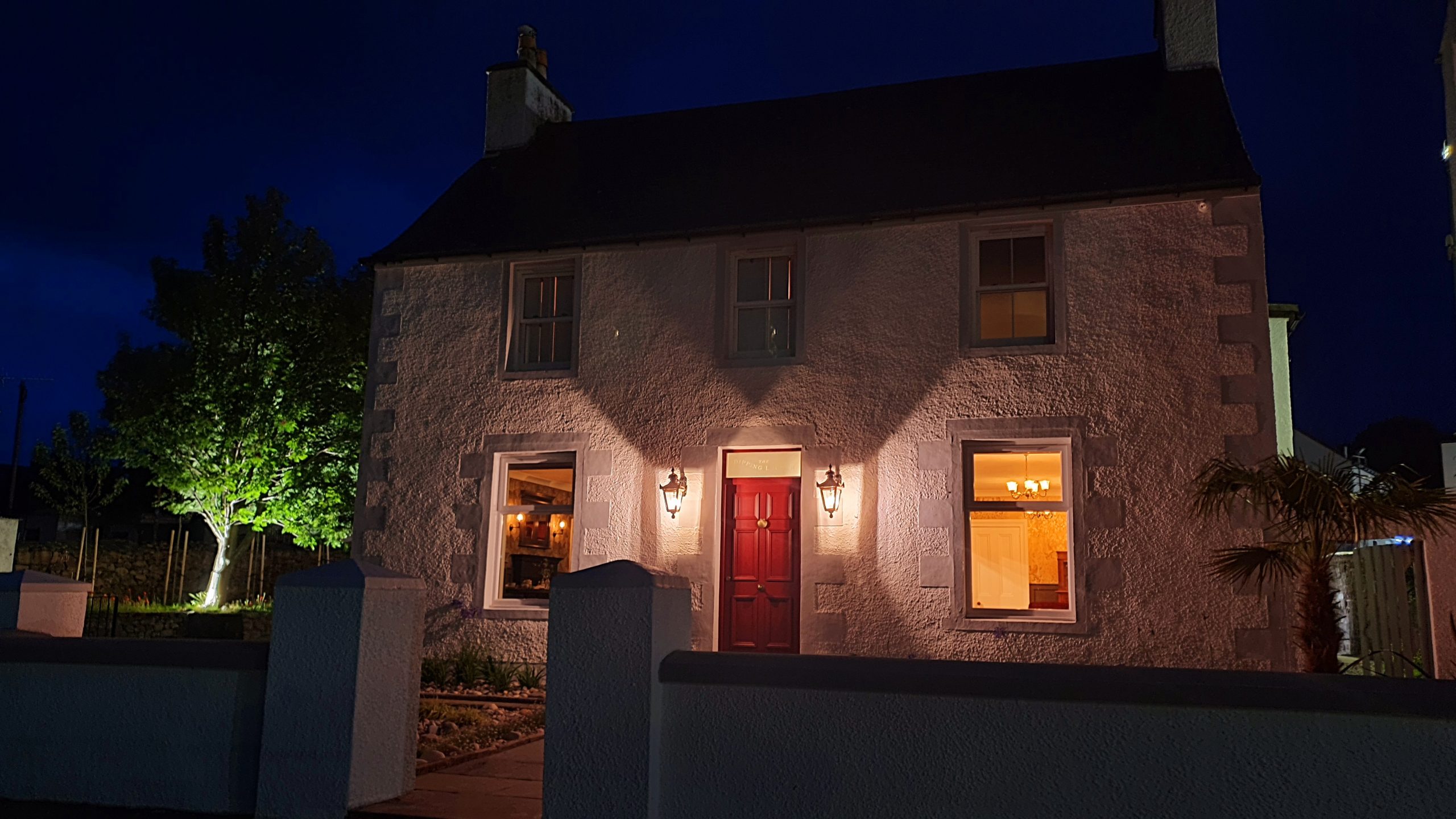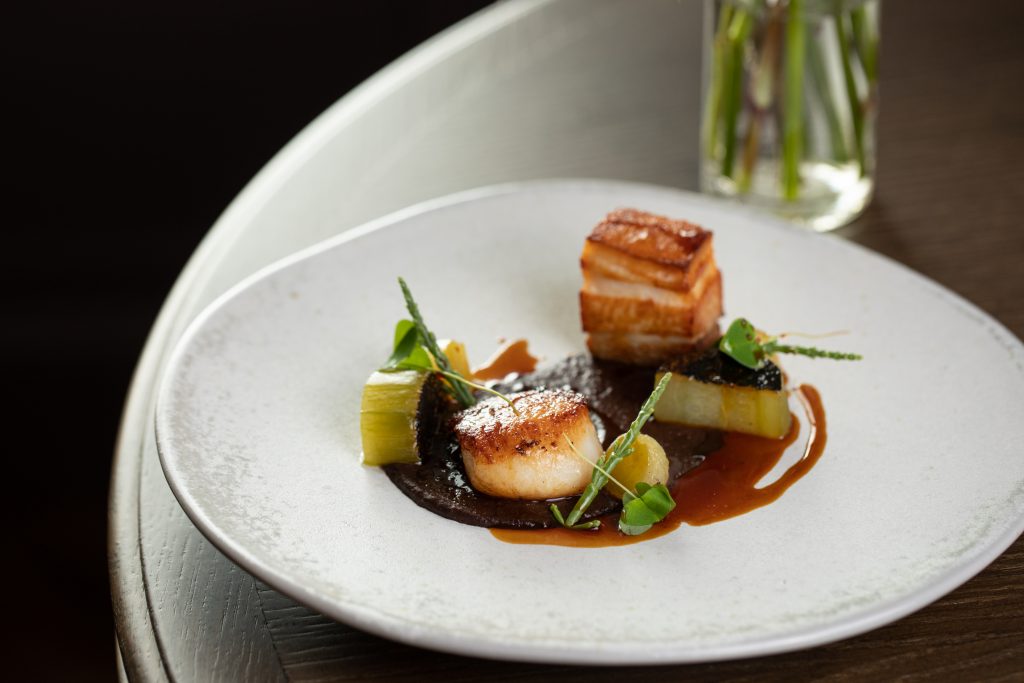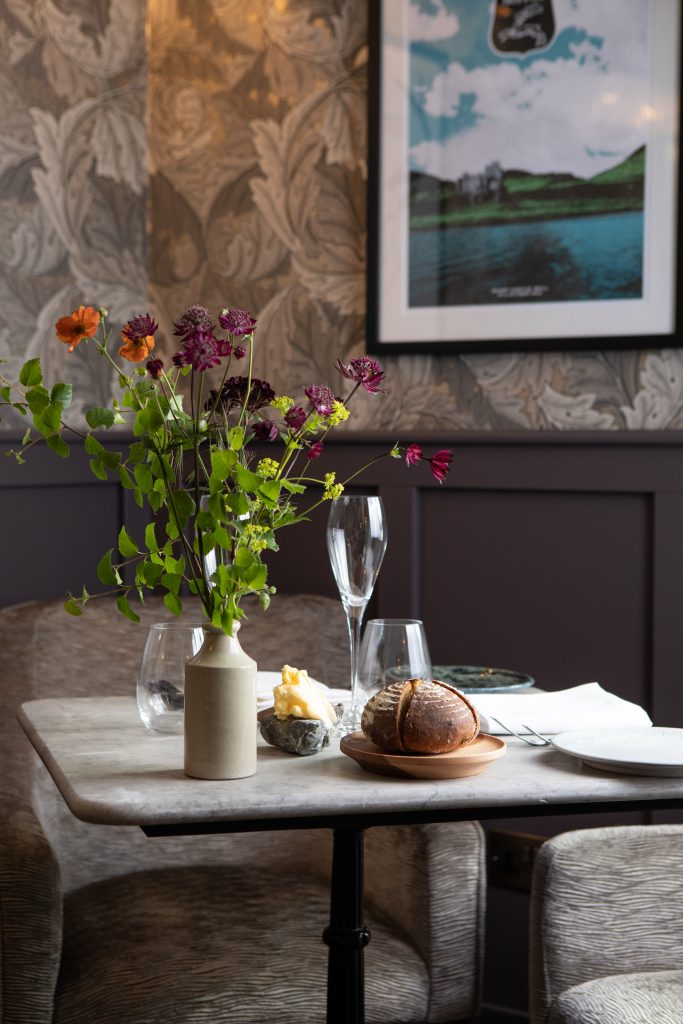The Dipping Lugger*, a unique restaurant and rooms overlooking the shores of Loch Broom in Ullapool on Scotland’s West Highland Coast, has just opened. It will be the first of its kind in Scotland to have interiors by renowned designer Eve Cullen-Cornes and a dining room overseen by head chef David Smith, formerly of Boath House, Nairn.
The restaurant is housed in what was previously the parish manse, dating back to 1789. It was partly rebuilt by Thomas Telford in 1829 and has been lovingly and painstakingly restored into a luxury retreat and restaurant by owners Robert Hicks and Helen Chalmers with grant support from Highlands & Islands Enterprise. Robert, whose background is in hospitality, has worked at the two Michelin starred Altnaharrie Inn, Gleneagles, Gidleigh Park and London’s Four Seasons.
At the helm in the kitchen is David Smith whose menus are set to showcase the fantastic produce the Highlands are famous for, including Ullapool’s incredible seafood. David has a stellar cooking CV which includes some of Scotland’s best restaurants, such as Boath House and Ullinish Country Lodge Hotel. A seven-course dinner menu and four course lunch menu will both be on offer including dishes such as Loch Broom Oyster, Spiced Carrot & Roe Deer.
The 18-cover restaurant also features ‘The Tasting Room’; an intimate two table dining room that doubles as a gin sampling room, where guests can enjoy a dram of Seven Crofts gin, from Robert and Helen’s award-winning Ullapool distillery, Highland Liquor Company. The unusual nooks and crannies don’t stop there; overnight guests can also enjoy a nightcap in their own ‘Sweet Shop’; a dedicated treasure trove of sweet and liquid treats in the first-floor honesty bar. Looking after guests front of house is general manager Calum Robertson who brings a lifetime’s experience in hospitality with him including well-known Scottish institutions’, the Ubiquitous Chip in Glasgow and the Killiecrankie Hotel.
The attention to detail is evident throughout the property and the owners have ensured that the rooms remain true to their roots by working with local craftspeople, including Highland Stoneware to create bespoke pottery made from the very rock the restaurant sits on, tableware crafted by friend and carpenter, Simon Eltringham, using local wood and bespoke artwork by local artist, Charlotte Watters.
Upstairs are three stylish and comfortable en suite bedrooms which, along with the downstairs space, are the creative vision of interior designer Eve Cullen-Cornes. Cullen-Cornes specialises in creating memorable dining destinations having worked on The Padstow Townhouse by Paul Ainsworth and Tom Kerridge’s Hand and Flowers.
Downstairs Eve has married the natural elements and opulence, with parquet flooring, velvet and leather upholstery and marble tabletops. Tones of rich red, inky blue and vibrant emerald green, slate and soft greys and golds blend seamlessly, while the rooms are softly lit, with plenty of Highland light and real fires throughout to create welcoming and comfortable spaces.
The bedrooms follow in a similar theme. Crisp white linen is offset by soft tartan wool blankets in muted tones which bring the colours of the surrounding water and landscape into the room, whilst the bright, bold wallpaper and artworks provide a subtle quirkiness. The generous en suite bathrooms pay homage to the past with stand alone roll top bathtubs taking centre stage.
Dinner is served Thursday to Sunday, 7 for 7.30pm. £75pp, with optional wine pairing for £50pp.
Lunch is served Friday to Sunday, 12.30 for 1pm. £35pp, with optional wine pairing for £25pp.
Dinner bed and breakfast for two people starts at £390 per room per night.
To book call 01854 613344 or visit the website www.thedippinglugger.com
The Dipping Lugger
4 West Shore Street
Ullapool
Wester Ross
IV26 2UR
INSTA @thedippinglugger
TW @dippinglugger
*A Dipping Lugger is a sailing vessel defined by its rig, using the lug sail on all of its one or several masts. They were widely used as working craft, particularly off the UK coast.



